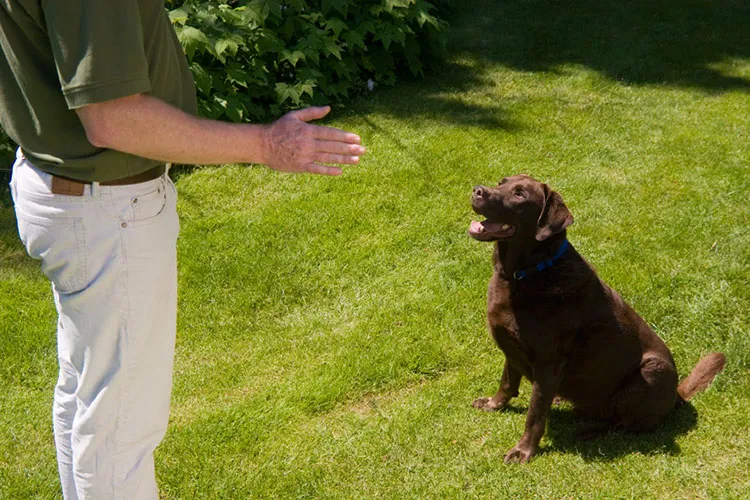The importance of training your dog

When people buy a puppy, they take their responsibilities very seriously, ensuring that the puppy receives the necessary vaccinations, learns where to sleep, where to eat, and where to toilet. Then, when the puppy is ready and able to leave the house, they conscientiously attend puppy training classes every week for the first few months of the dog’s life.
Clearly this behaviour shows a responsible and conscientious attitude towards dog ownership, and is extremely commendable. However, as dog trainers & behaviour therapists we find that there is more to training a dog than teaching the basics in the early months of a dog’s life, and then assuming the work is done. Just like when we humans learn a new skill, unless we practise by using the skills regularly to reinforce our knowledge, we will forget much of what we have learnt. It is the same for dogs. Unless they practise, and repeat the behaviour of listening to your instructions, following what is asked, and receiving positive reinforcement from you, they will soon forget what they have learnt and what is expected of them.
Owners who don’t realise the importance of regular training sessions with their dog can sometimes see their dog’s level of obedience deteriorate. They can become exasperated by their dog’s behaviour, lose confidence and patience and become inconsistent in their commands and praise giving. This situation can quickly spiral downwards and is probably one of the main reasons why we see so many dogs being surrendered to rescues and shelters.
We often meet owners who are deflated and demotivated because their dog appears to lack basic levels of obedience whilst other dogs they meet are beautifully trained and a pleasure to observe. We would encourage these owners to take heart from the fact that we never meet a dog who is beyond help. Often, just a few weeks of regular training between a dog and its owner can reverse years of unruly behaviour, and reduce stress in both owner and dog.
Dogs are much happier and less stressed when they know what is expected of them and can trust that the leadership decisions of their owner will keep everyone safe. If you fail to behave in a way that lets your dog know he can depend on you to make the right decisions, he may start to make decisions for himself based on his own safety assessments. You need to know that your dog will listen to your commands over and above his own instincts. Only by regular and consistent bonding through training will you achieve this level of mutual trust and respect.
As with any new set of skills you want to acquire, start simple and progress from there. Firstly, try to do some basic training with your dog every day. Do exercises that he learnt as a puppy, or just some simple exercises like sit/stay or fetch. Make it fun, interactive and rewarding for your dog so that, whilst you know that you are training him, your dog is having fun listening to you, and being the focus of your attention. Doing this sort of training for short periods once or twice a day will help you to build a bond with your dog. He’ll also, hopefully, be receiving lots of praise from you, and your voice tones will let him know that you are happy with him. Be patient…your dog may not do the exercises successfully at first, but with time and practice he will improve.
Learn how to use your voice tones consistently. Dogs do not speak English so they will find it much easier to interpret your tone of voice. A light, happy voice tells him that you are pleased with him, whilst a gruff voice can communicate displeasure. Don’t mix them up by praising in a gruff voice…it’s the tone your dog will hear rather than the words.
A well-trained dog is a safe dog. So, once you have mastered the basics, try some of the more difficult exercises like recall (coming back when called) or stopping a dog in motion. Start in the house or garden where it is safe and secure, and practise repeatedly ensuring you praise success every time. Being able to recall or stop your dog in motion instantly and consistently could save his life.
Due to recent changes to dog laws, it has never been more important for dog owners in the UK to have their dogs under control. For the safety of both you and your dog, please try to start early when your dog is a puppy, and remember that training is an ongoing lifetime commitment. If you find that you are struggling, call in a professional who will be happy to help you. Bark Busters Home Dog Training therapists will always do their utmost to help you establish routines and communication with your dog to minimise the chances of your dog being one who is surrendered to the shelter.
Bark Busters trainers have trained more than 1 Million dogs worldwide and are renowned authorities in addressing dog behaviour with all-natural, dog-friendly methods. Bark Busters training is the only service of its kind that offers International guaranteed lifetime support. With hundreds of trainers around the world, Bark Busters continues its mission to enhance the human/canine relationship and to reduce the possibility of maltreatment, abandonment and euthanasia. Contact your local Bark Busters dog trainer to see how they can help.
Recent Articles
- Easter Holidays - Keeping our dogs safe around food
- Horticultural Horrors for Hounds
- Understanding Dog Body Language
- Heatstroke in dogs - know the signs and what to do
- Preventing Separation Anxiety When Returning To Work
- Separation Anxiety
- Managing your time at home with your dog
- Top 10 Indoor Games for your Dog
- Working from home with your dog
- COVID-19 Social Distancing and Self Isolation
